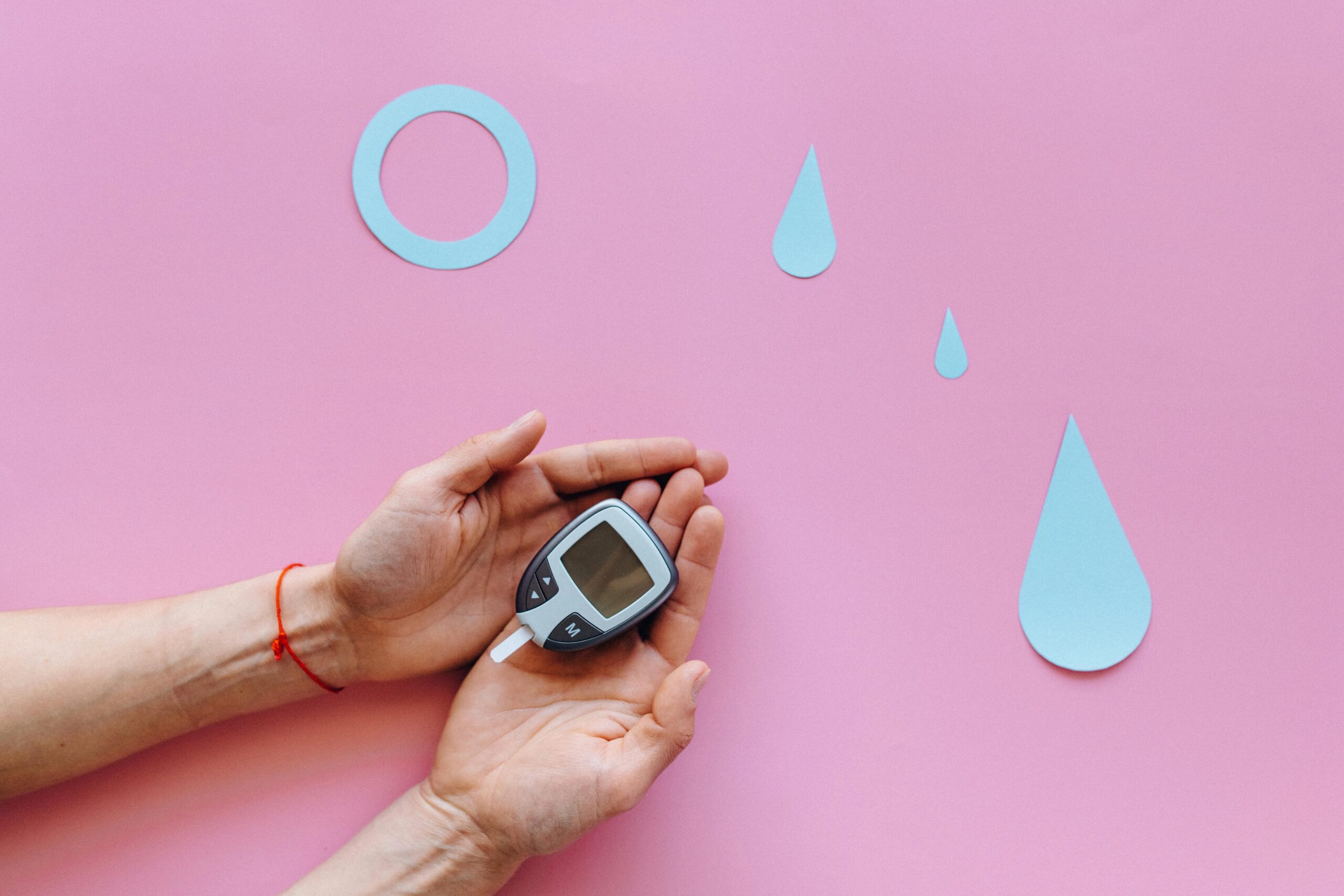
Diabetes is a chronic condition that affects millions of people worldwide. While both men and women can develop diabetes, there are certain early symptoms that are more commonly experienced by women. These symptoms can often be subtle and easily overlooked, but it is important for women to be aware of them in order to catch and manage diabetes early on. In this introduction, we will discuss some of the early symptoms of diabetes in women and the importance of recognizing them.
Fatigue and Weakness
Diabetes is a chronic disease that affects millions of people worldwide. It is characterized by high levels of glucose in the blood, which can lead to serious health complications if left untreated. While both men and women can develop diabetes, there are some differences in the early symptoms experienced by women. In this article, we will focus on one of the most common early signs of diabetes in women – fatigue and weakness.
Fatigue and weakness are often overlooked as symptoms of diabetes, as they can be attributed to a variety of other factors. However, in women, these symptoms can be an early indication of the disease. Fatigue is a feeling of extreme tiredness or lack of energy, while weakness refers to a decrease in physical strength. Let’s take a closer look at how these symptoms manifest in women with diabetes.
One of the main reasons why fatigue and weakness are early signs of diabetes in women is due to the body’s inability to properly use glucose for energy. In diabetes, the body either does not produce enough insulin or cannot use it effectively. Insulin is a hormone that helps glucose enter the cells to be used as energy. Without enough insulin, glucose remains in the bloodstream, leading to high blood sugar levels. As a result, the body’s cells do not receive the necessary energy, causing fatigue and weakness.
Moreover, high blood sugar levels can also cause damage to the nerves, leading to a condition called diabetic neuropathy. This can result in numbness, tingling, or weakness in the hands and feet, making it difficult for women to perform daily tasks. This nerve damage can also affect the muscles, causing weakness and fatigue.
Another factor that contributes to fatigue and weakness in women with diabetes is dehydration. High blood sugar levels can cause frequent urination, leading to dehydration. When the body is dehydrated, it can cause a drop in blood pressure, resulting in fatigue and weakness. Additionally, dehydration can also lead to an electrolyte imbalance, which can further contribute to weakness and fatigue.
Furthermore, women with diabetes are at a higher risk of developing anemia, a condition where the body does not have enough healthy red blood cells to carry oxygen to the body’s tissues. Anemia can cause fatigue and weakness as the body’s cells do not receive enough oxygen to function correctly. This is because high blood sugar levels can damage the blood vessels, leading to poor circulation and reduced oxygen supply to the body’s tissues.
It is essential for women to pay attention to their energy levels and any changes in their physical strength. If you notice that you are feeling more tired than usual or experiencing weakness, it is crucial to consult a doctor. Early detection and treatment of diabetes can help prevent further complications and improve overall health.
In addition to fatigue and weakness, women with diabetes may also experience other symptoms such as increased thirst, frequent urination, blurred vision, and unexplained weight loss. It is essential to note that these symptoms may vary from person to person, and some women may not experience any symptoms at all. Therefore, it is crucial to get regular check-ups and blood sugar tests to detect diabetes early on.
In conclusion, fatigue and weakness are early signs of diabetes in women that should not be ignored. These symptoms can be caused by various factors, but in women with diabetes, they can be an indication of high blood sugar levels, nerve damage, dehydration, and anemia. If you are experiencing these symptoms, it is essential to consult a doctor for proper diagnosis and treatment. Remember, early detection and management of diabetes can help prevent serious health complications and improve overall quality of life.
Unexplained Weight Loss
Diabetes is a chronic disease that affects millions of people worldwide. It is characterized by high levels of glucose in the blood, which can lead to serious health complications if left untreated. While both men and women can develop diabetes, there are certain symptoms that are more commonly seen in women. One of these early symptoms is unexplained weight loss.
Unexplained weight loss is defined as a significant decrease in body weight without any intentional effort to lose weight. For women, this can be a cause for concern as it may indicate an underlying health issue, such as diabetes. In fact, unexplained weight loss is often one of the first signs of diabetes in women.
So why does diabetes cause weight loss? The answer lies in the body’s inability to properly use glucose for energy. In a healthy individual, insulin, a hormone produced by the pancreas, helps to regulate the amount of glucose in the blood. However, in people with diabetes, either the body does not produce enough insulin or it cannot effectively use the insulin it produces. As a result, the body is unable to convert glucose into energy, leading to high levels of glucose in the blood.
When the body is unable to use glucose for energy, it turns to other sources, such as fat and muscle. This can lead to weight loss, as the body breaks down these tissues to provide energy. In addition, the excess glucose in the blood is excreted through urine, causing further weight loss.
Unexplained weight loss is more commonly seen in type 1 diabetes, which is an autoimmune disease where the body’s immune system attacks and destroys the cells in the pancreas that produce insulin. This type of diabetes is usually diagnosed in children and young adults, but it can occur at any age. In type 1 diabetes, weight loss may occur rapidly and can be accompanied by other symptoms such as extreme thirst, frequent urination, and fatigue.
However, unexplained weight loss can also be a symptom of type 2 diabetes, which is the most common form of diabetes. In type 2 diabetes, the body becomes resistant to the effects of insulin, leading to high levels of glucose in the blood. This type of diabetes is more commonly seen in adults, especially those who are overweight or obese. In type 2 diabetes, weight loss may occur more gradually and may not be as noticeable as in type 1 diabetes.
It is important to note that unexplained weight loss can also be a symptom of other health conditions, such as thyroid problems, cancer, or gastrointestinal disorders. Therefore, it is crucial for women to consult their healthcare provider if they experience significant weight loss without any apparent reason.
If you are a woman experiencing unexplained weight loss, it is important to pay attention to other symptoms that may indicate diabetes. These include increased thirst, frequent urination, fatigue, blurred vision, and slow-healing wounds. If you have a family history of diabetes or are at risk for developing the disease, it is even more important to monitor your weight and any other symptoms you may be experiencing.
In conclusion, unexplained weight loss is a common indicator of diabetes in women. It occurs when the body is unable to properly use glucose for energy, leading to the breakdown of fat and muscle tissues. If you are experiencing unexplained weight loss, it is important to consult your healthcare provider to determine the underlying cause and receive proper treatment. Early detection and management of diabetes can help prevent serious health complications and improve overall quality of life.
Thirst, Frequent Urination, and Hunger
Diabetes is a chronic disease that affects millions of people worldwide. It occurs when the body is unable to produce or properly use insulin, a hormone that regulates blood sugar levels. While diabetes can affect both men and women, there are certain early symptoms that are more commonly seen in women. These symptoms, if recognized early on, can help women take necessary steps to manage their condition and prevent further complications.
One of the most common early symptoms of diabetes in women is excessive thirst. This is known as polydipsia and is caused by the body’s attempt to flush out excess sugar through urine. When blood sugar levels are high, the kidneys work harder to filter and remove the excess sugar, resulting in increased urine production. This, in turn, leads to dehydration and triggers the body’s thirst mechanism. Women with diabetes may find themselves constantly reaching for a glass of water or feeling like they can never quench their thirst.
Along with excessive thirst, frequent urination is another early warning sign of diabetes in women. This is known as polyuria and is closely linked to polydipsia. As the body tries to get rid of excess sugar through urine, women may find themselves making more trips to the bathroom than usual. This can be disruptive to daily life and may even cause sleep disturbances. If left untreated, frequent urination can lead to urinary tract infections, which can further complicate the management of diabetes.
Another early symptom of diabetes in women is increased hunger, also known as polyphagia. This is caused by the body’s inability to use glucose for energy, leading to a constant feeling of hunger. Women with diabetes may find themselves eating more than usual, yet still feeling unsatisfied. This is because the body is unable to convert the food into energy, resulting in a constant cycle of hunger and overeating. This can lead to weight gain and further exacerbate the symptoms of diabetes.
Aside from these three main symptoms, there are other warning signs of diabetes in women that should not be ignored. These include unexplained weight loss, fatigue, blurred vision, and slow healing of wounds. Women may also experience tingling or numbness in their hands and feet, as well as dry, itchy skin. These symptoms may not be as obvious as the main three, but they should still be taken seriously and discussed with a healthcare professional.
It is important for women to recognize these early symptoms of diabetes and seek medical attention if they experience them. Early diagnosis and treatment can help prevent further complications and improve the overall management of the disease. Women should also be aware of their risk factors for diabetes, such as family history, obesity, and a sedentary lifestyle. Making lifestyle changes, such as maintaining a healthy weight, exercising regularly, and eating a balanced diet, can help reduce the risk of developing diabetes.
In conclusion, recognizing the early symptoms of diabetes in women is crucial for early diagnosis and effective management of the disease. Excessive thirst, frequent urination, and increased hunger are the main warning signs that women should be aware of. These symptoms, along with other warning signs, should not be ignored and should be discussed with a healthcare professional. By being proactive and making necessary lifestyle changes, women can take control of their health and prevent the complications of diabetes.In conclusion, it is important for women to be aware of the early symptoms of diabetes in order to seek proper medical attention and treatment. Some common early signs of diabetes in women include frequent urination, excessive thirst, unexplained weight loss, and fatigue. It is crucial for women to monitor their health and consult a doctor if they experience any of these symptoms, as early detection and management of diabetes can greatly improve overall health and prevent potential complications. By staying informed and proactive, women can take control of their health and effectively manage diabetes.


